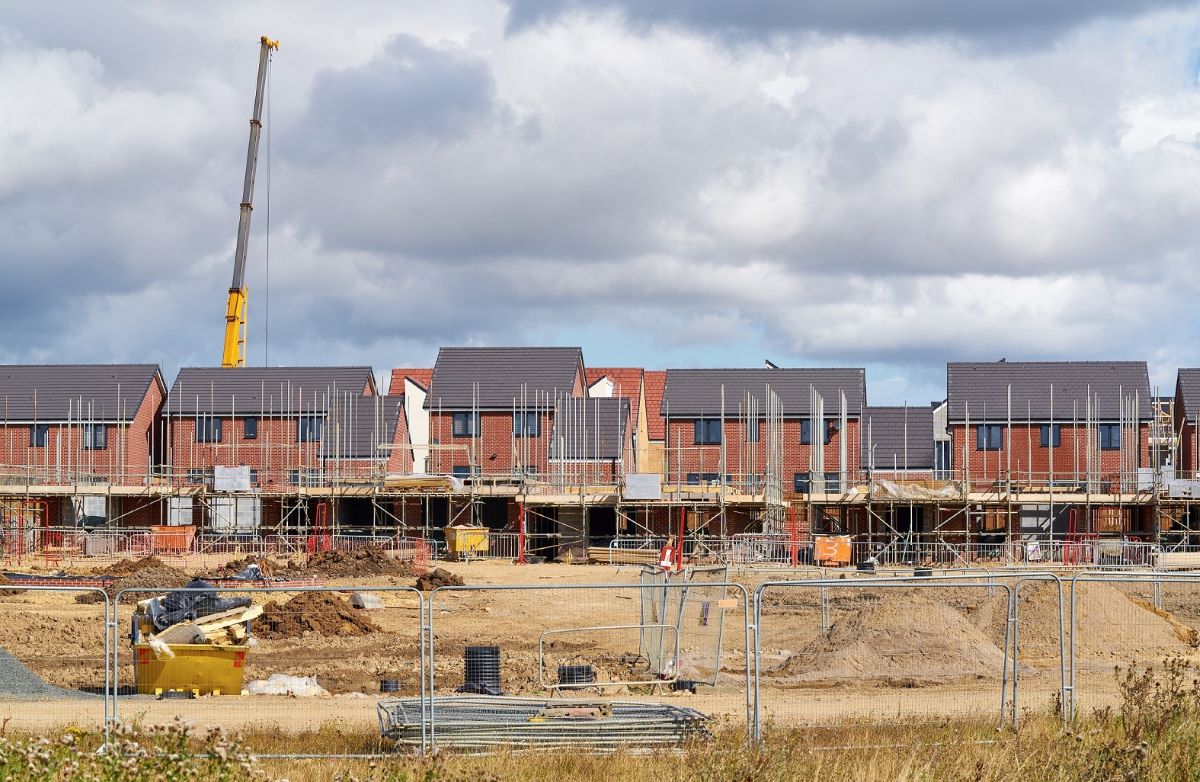Salford researchers to help tackle housebuilding challenges to meet industry demand
New research from the University of Salford’s HIVEE (Housebuilding Innovations in Volume, Environment and Efficiency) research cluster has uncovered the UK’s housebuilding sector is struggling to meet supply chain challenges in the current climate, calling for a new strategic direction.
As such, this October researchers at the University are hosting an event for those interested in the housebuilding sector to gain insight on the future of the industry and to evolve current procurement processes. The full day event, on 23 October at the University’s MediaCityUK campus, will be hosted as part of the ESRC’s (Economic and Social Research Council) Festival of Social Science and is free to attend.
In addition to researchers from the University, industry experts from the likes of leading housebuilder, Barratt Homes, and sustainable heating and cooling solutions provider, Daikin, will be speaking during the event. Each will share valuable insight on a range of areas impacting the industry, including the evolution of the role of the architect, opportunities to adopt new emerging technologies for design, and how new sustainability research could help shape environmental policy while navigating other industry concerns during live panel discussions.
“The housebuilding sector is in essential need of a new strategic direction, if it is to overcome the supply chain challenges it’s currently facing. On top of this, it’s widely reported that the construction sector is facing significant impact due to a burgeoning skills shortage. While the sector has traditionally relied on a younger workforce due to the nature of the job, fewer people are opting for this career route and there’s been a sharp decline in the number of apprentices entering the sector.
“With a loss of construction skills and limits on traditional building materials, it’s essential the sector progresses current practices if it’s to be resilient. However, new methods of construction and their take up are being held back and stopping housebuilders from being able to modernise their supply chains around these proposed methods,” commented Aaron Robertson, Lecturer in Supply Chain, Logistics and Project management, plus Research Lead for HIVEE at the University.
According to the Department for Education, in 2022-23, 24,530 workers started construction, planning and built environment apprenticeships, representing a decline from 26,080 in the previous academic year[i].
In addition, according to the Royal Institution of Chartered Surveyors’ (RICS) digitalisation in construction report 2023, while expectations were for the sector to see an increase in the use of digital tools, adoption levels remained unchanged on the previous year.

"At Daikin, we see tremendous opportunities ahead. The focus on sustainability is not only shaping environmental policies but also driving innovation in our industry. Daikin is leading the way, providing solutions that help our customers transition to more energy-efficient and eco-friendly systems. Training is one of our core priorities, and we’re committed to equipping the industry with the skills to deliver these new technologies. We are here to help navigate this change, ensuring that our technologies contribute to a healthier planet and a sustainable future for all," said Iain Bevan at Daikin UK.
“The majority of the sector still sees procurement and supply chain as a supporting function. If the country is to reach the required volume, the supply chain needs to collaborate and come together to create a more proactive and strategic approach to managing the upcoming challenges. This is a great event to start discussing the future of supply chain research and how this can support companies to address quality concerns and ESG standards to ultimately deliver better and more affordable housing for the end customer,” added Drew Robertson, Senior Group Procurement Manager/Supplier Development at Barratt Homes.
Aaron concludes: “If the housebuilding sector is to meet growing demand and the ambitious targets it’s been set to help tackle the UK’s housing crisis, it’s essential new technologies and methods are adopted, and the digital transformation of the sector is accelerated at rapid pace.
“This event will help outline what the future of the sector looks like and the opportunities available to support modernisation and, ultimately, growth.”
Dr Graeme Sherriff, Reader and Co-Director of the Sustainable Housing and Urban Studies Unit, as well as Dr Ian Owen, Lecturer in Architecture at the University of Salford, will also be leading sessions throughout the day.
The theme of this year’s ESRC Festival of Social Science is ‘our digital lives.’
For all press office enquiries please email communications@salford.ac.uk.
Share:
